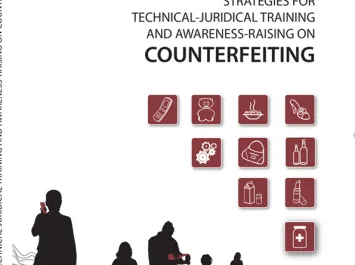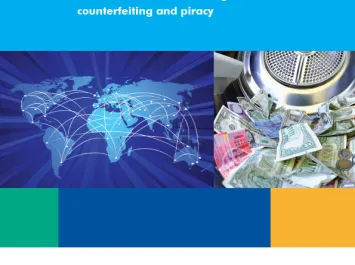From 20 to 24 October 2025, the Italian Ministry of Enterprises and Made in Italy (MIMIT) will host the tenth edition of the Anti-Counterfeiting Week, an institutional initiative dedicated to raising awareness of the economic, social and health-related impacts of counterfeiting and promoting the culture of legality, the protection of industrial property, and the value of Made in Italy.
Promoted under the guidance of Minister Adolfo Urso and Deputy Minister Valentino Valentini, and with the support of the Directorate General for Industrial Property – Italian Patent and Trademark Office (UIBM), the initiative represents a key platform for dialogue and cooperation among institutions, law enforcement agencies, businesses, and civil society.
Now in its tenth edition, the Anti-Counterfeiting Week aims to inform and sensitize citizens, enterprises and consumers on the dangers of counterfeit goods and on the links between counterfeiting, organised crime and illicit trade. The initiative also underscores the importance of strengthening international cooperation, technological innovation, and consumer education to prevent the circulation of counterfeit products that harm the economy, undermine fair competition, and endanger public health.
Throughout the five-day programme, participants will explore a broad range of topics including:
- Enforcement actions and investigative efforts to combat counterfeiting both online and offline;
- The impact of artificial intelligence on counterfeit markets;
- The protection of Made in Italy products abroad;
- The phenomenon of fake online reviews and deceptive commercial practices;
- Consumer protection and the promotion of responsible purchasing behaviour.
The opening event will feature the plenary session of the National Council for the Fight against Counterfeiting and Italian Sounding (CNALCIS), which will define the strategic lines of Italy’s national anti-counterfeiting policy for 2025–2027. The session will also present the new Report on Anti-Counterfeiting Activities carried out between July 2024 and June 2025, as well as the progress in implementing the anti-counterfeiting measures introduced under the Made in Italy Act (Law No. 206/2023).
UNICRI’s contribution
Within this framework, Marco Musumeci, Programme Manager at UNICRI, will take part in discussions on investigative approaches supporting enforcement authorities in countering counterfeit markets.
Mr. Musumeci will present the investigative guidelines developed with the support of the MIMIT. The guidelines are inspired by the Handbook developed under the European Multidisciplinary Platform Against Criminal Threats (EMPACT) initiative, in which Italy acts as co-driver. They are intended as a practical tool for law enforcement authorities to strengthen investigative capacity and trace illicit distribution chains, identifying the individuals, companies, goods, financial flows and connected offences involved in counterfeit schemes.
The project, launched in July 2024 and presented to the National Council for the Fight against Counterfeiting and Italian Sounding (CNALCIS), involves representatives from law enforcement bodies and MIMIT in the creation of five thematic investigative guidelines focusing on:
- Sales through social media
- Sales via websites and e-commerce platforms
- Sales through authorised retailers and wholesale distribution
Each guideline combines operational guidance, legal frameworks and technical specifications, complemented by annexes containing case-based examples and specialized insights. The initiative also foresees the development of a vademecum for the judiciary, ensuring a coherent and coordinated response across institutions.
Strengthening cooperation against illicit trade
UNICRI’s participation in the Anti-Counterfeiting Week reaffirms its commitment to support Member States in addressing illicit trade and organized crime, through applied research, policy advice and capacity-building activities.
By providing tailored operational tools and promoting inter-agency cooperation, UNICRI contributes to enhancing collective efforts to disrupt illicit supply chains, protect consumers, and safeguard the integrity of legitimate markets.
To register: The enforcement system: new investigative guidelines and an overview of the actions undertaken



